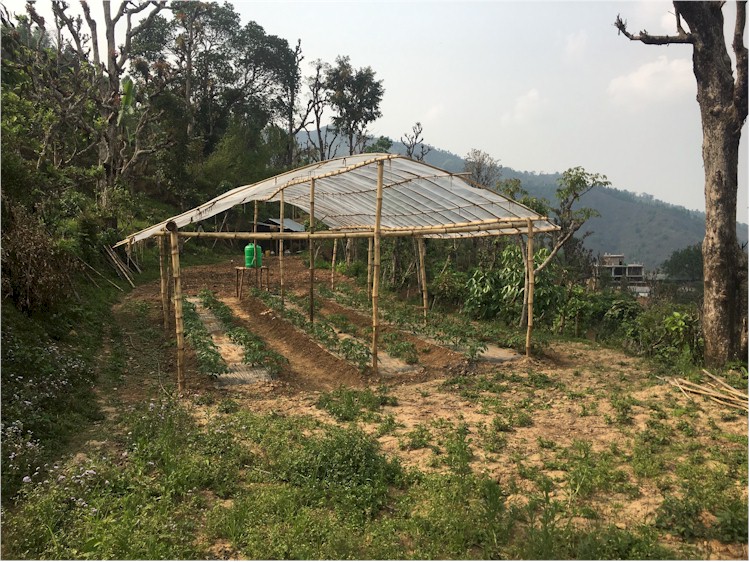

Tower and Town, July 2019 (view the full edition) (view the full edition)Volunteering In NepalAfter studying at Marlborough College for 5 years Luke decided to take a gap year in order to reapply to university and to travel. He now has a place to read music at Oxford. The most rewarding part of my gap year has been the three months I spent volunteering with Raleigh International as part of an International Citizenship Service (ICS) programme. Raleigh International is a sustainable development charity that works to create lasting change through youth action. In early February, I joined 37 other UK volunteers on a flight to Kathmandu to start what would be an unforgettable twelve weeks away from home. After four days in Kathmandu, where we received training and got to know each other, I was very excited to leave Kathmandu for my community where I would be living for the following twelve weeks. The village that my team was working in was named Raniswara, located in the Gorkha region. Travel to the village involved a very dangerous and spectacular five-hour bus journey from Kathmandu, and arriving in Raniswara was very memorable. I will never forget seeing the view of the Himalayas for the first time. The main aim of the volunteering programme was to construct polytunnels for village households. These polytunnels will be used for growing tomatoes to be sold in a nearby market, thereby helping to increase and diversify household incomes.  Many households in the community rely heavily on men working abroad and sending remittances home in order to make ends meet. As a result of this there are few men in the village, particularly young men. In my host family, for example, both of my host mother's sons worked in Dubai. In an effort to make our construction work sustainable, we always worked alongside the community so that they will be able to maintain and continue building polytunnels in the future. There were forty-nine households in the village and we built a polytunnel for every household that wanted one - twenty-five tunnels in total. The financial effects from selling tomatoes is potentially life-changing. Over three years approximately one million rupees (£7000) can be generated in one household. The average yearly income in rural Nepal is 330,000 rupees (£2400). The hope is that this income will diminish the reliance on remittance and the need for young Nepali men to migrate to find work. It is a sad reality that many children in rural Nepal will grow up without a father. Our project was not limited to construction work. We also took part in sessions about climate change and youth development. One of my favourite events was a session at the local primary school about the problems associated with plastic. We helped the children to make useful items out of used plastic bottles. Adjusting to the many cultural differences was one of the most challenging aspects about the project. Despite my best efforts, my level of proficiency in Nepali was very limited which made communicating with my host family very difficult. However, by the end of the three months I was able to have 'conversations' with community members using a mixture of broken Nepali and sign language. Another big change was the food. In Raniswara people tended to have only two meals a day, one at mid-morning and another in the evening. Every meal was 'Dal Bhat'. This consisted of rice, lentils and something curried, usually potatoes and spinach. Although Dal Bhat is delicious, eating it solely for three months did get very repetitive. We rarely ate meat (buffalo, goat or chicken) as it was mainly restricted to festivals. Before leaving for Nepal my main concern was that the programme might not be particularly worthwhile, but I am left in no doubt that I have helped to make an ongoing impact on the community of which I was part. I would strongly encourage more young people to take part in an International Citizenship Service programme. The UK is committed to spending 0.7% of its National Income on foreign aid. In 2016 this equated to £13.4 billion - only the US spends more money on foreign aid. Some have argued that this money could be better spent elsewhere and in fact the ICS programme is being reviewed this year by the government's Department for International Development. However, I think that wealthier countries like ours have a responsibility to assist developing countries, particularly with the challenges of Climate Change, and that programmes like ICS should be continued. From my own experience, ICS not only helps tackle poverty in some of the world's poorest countries, but also has the benefit of creating active citizens within our own country. Luke Smith |